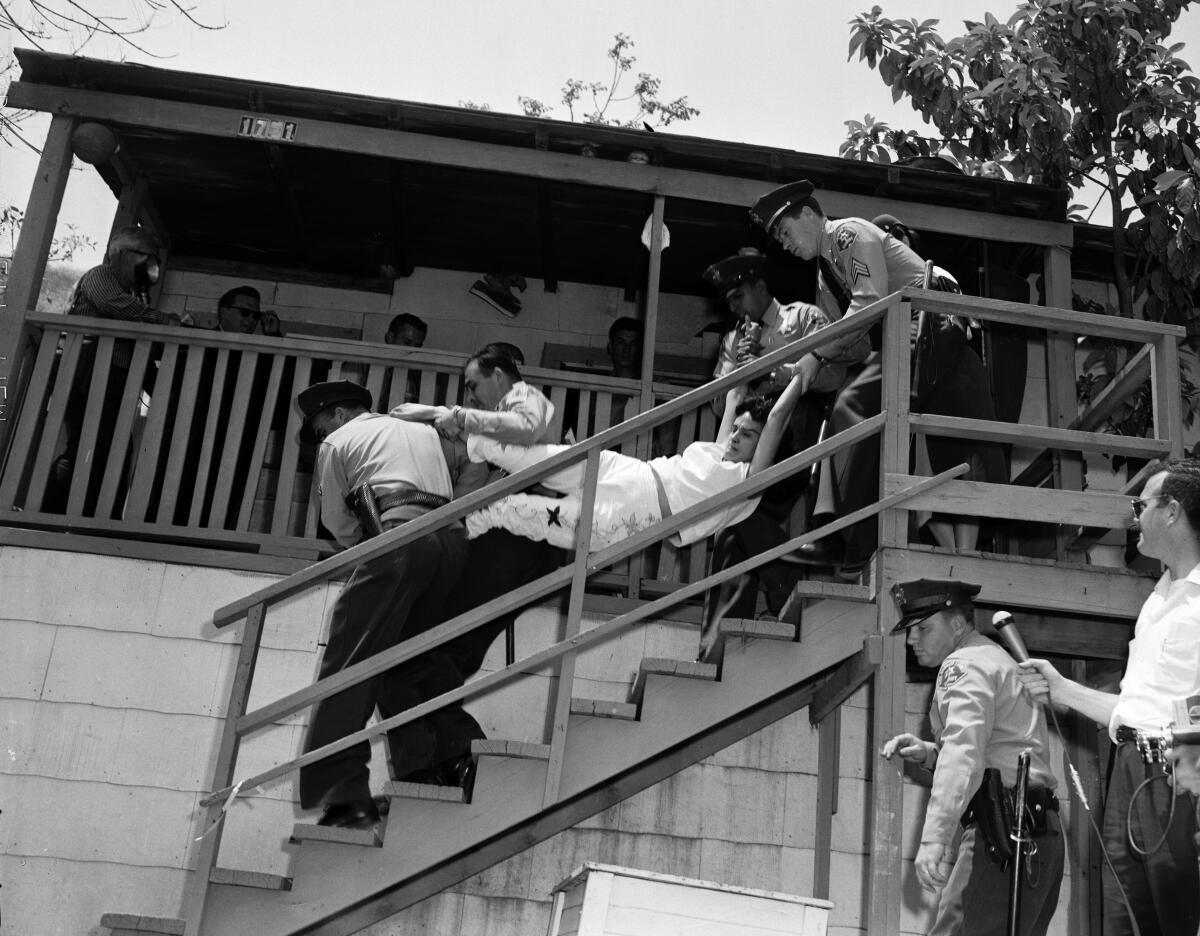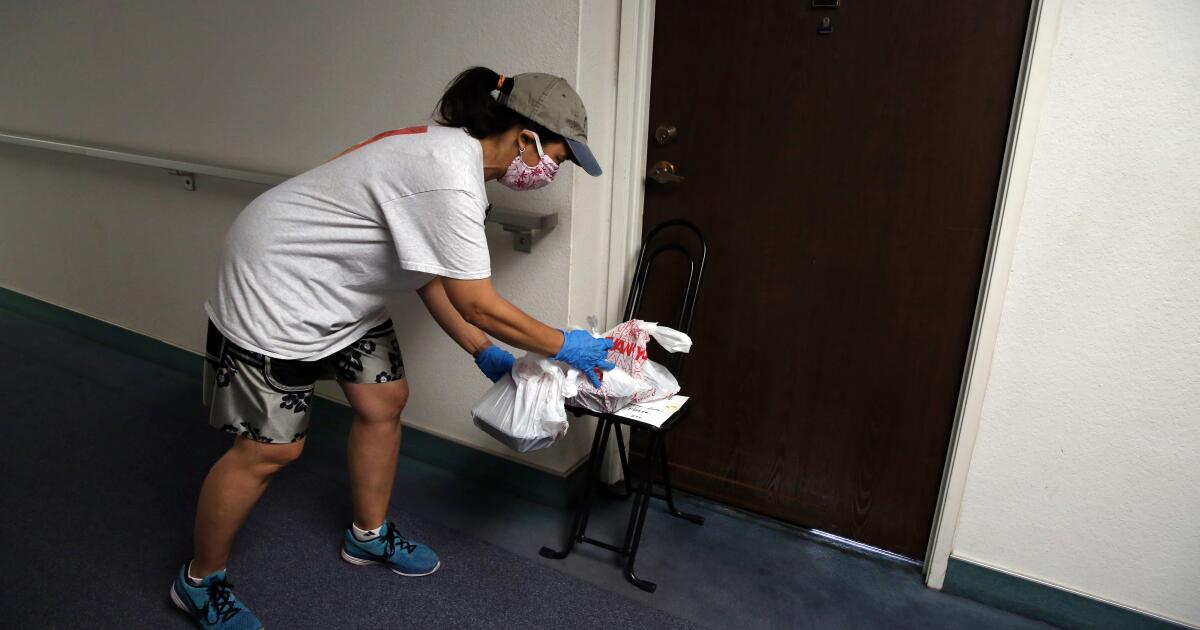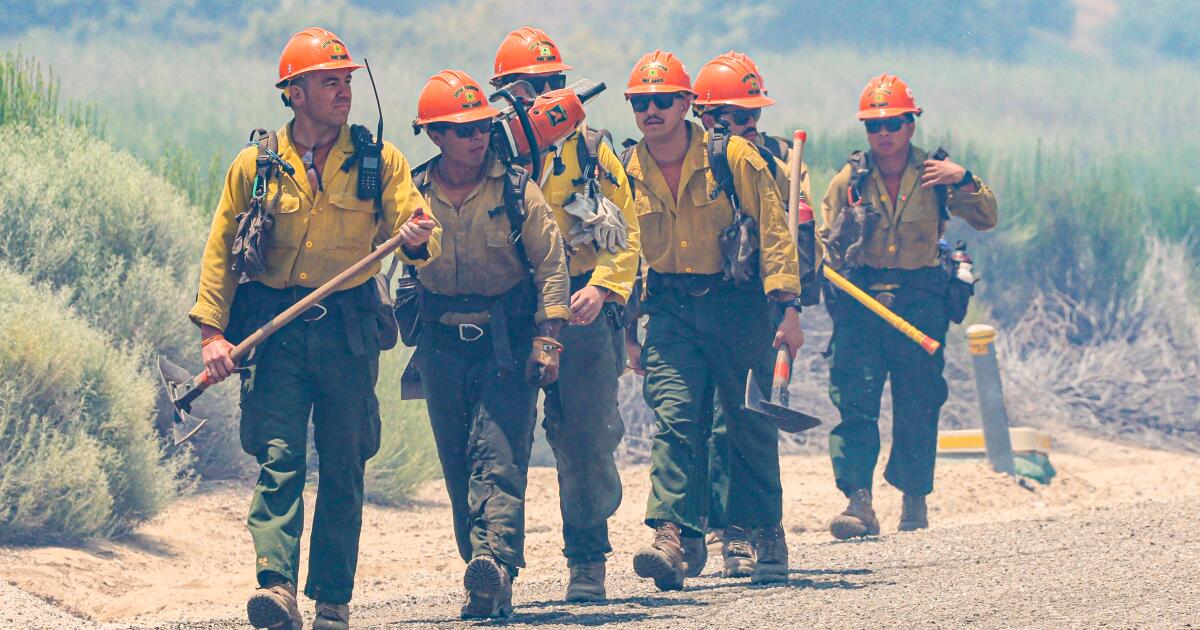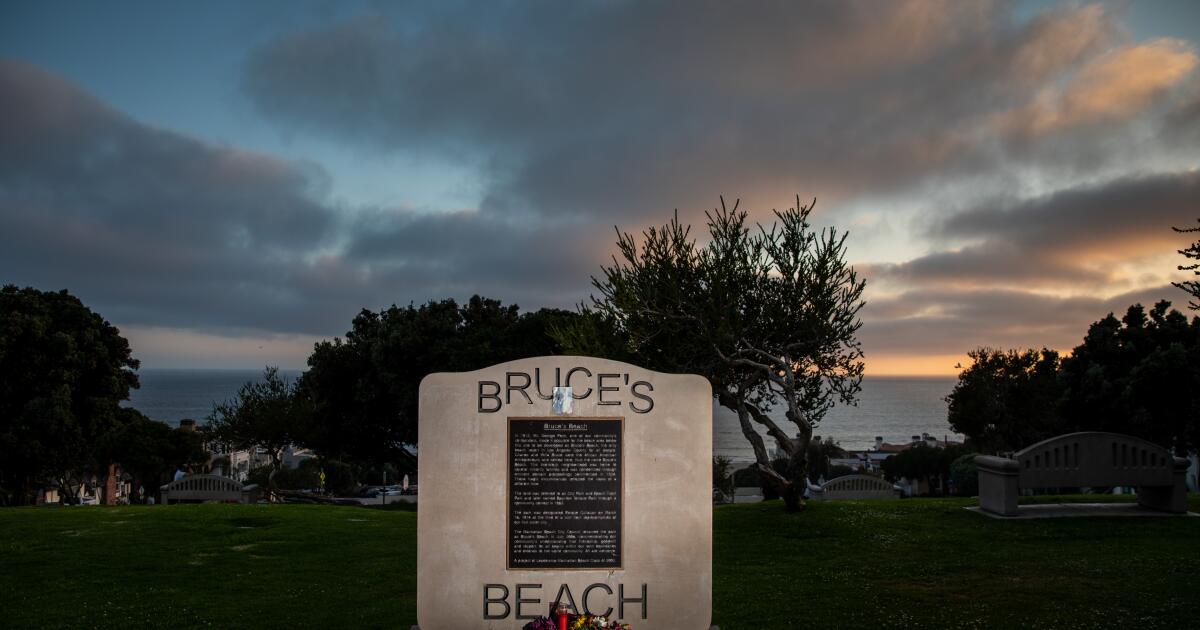Few government practices have caused a more rapid dismantling or erosion of generational wealth in Black and brown communities than the discriminatory use of eminent domain — the legal tool cities, counties and other official bodies rely on to unilaterally condemn and purchase private land for public use.
Several reparations bills being passed through the state legislature could help Black Californians, who believe their land was taken against their will with racist intent, finally receive compensation.
California state Sen. Steven Bradford, a Democrat from Gardena who authored one of the three pending bills, said the bills shed light on an event that is deeply ingrained in the Golden State’s history.
Under pressure from the Ku Klux Klan, the city of Manhattan Beach used its eminent domain authority in 1924 to evict a seaside resort for black guests owned by Willa and Charles Bruce, promising to build a park in its place.
Just as Silas White was about to realize his dream Ebony Beach Club As a black-owned haven free from racism, in 1958, Santa Monica used eminent domain to seize their property, demolish it and plan to build a public parking lot. The luxurious Viceroy Hotel now stands on that site.
“There are so many examples of African American families who were forced off their land for no other reason than they didn’t want to live there anymore,” Bradford said. “And now their homes have been replaced with freeways or parking lots, or like Manhattan Beach, a park has been put up, supposedly, on land that was built 40 years ago and it wasn’t even developed.”
Bradford said families who were forced to sell their land at a low price were missing out on the potential returns their property would have generated over many years, depriving them of the opportunity to develop their property and pass it on to their heirs.
At a recent Senate Judiciary Committee hearing, Bradford sat next to Jesse Johnson when he spoke about the pain that hasn’t abated in the past six decades, ever since his grandfather’s land was seized in the largely Black and Latino Bay Area community of Russell City in what was then unincorporated Alameda County. The land ended up in the hands of a developer and was taken over by the city of Hayward.
“We thought we would have the freedom to build on my grandfather’s land. Unfortunately, eminent domain took possession of it,” Johnson told committee members.
Bradford believes that hundreds and perhaps thousands of other California property owners, or their descendants, could seek financial relief under the proposed legislation.
“I can’t put a dollar figure on it — it’s that big,” he said.
Bradford’s compensation legislation would establish the Freedmen’s Affairs Agency, which would, among other things, determine the validity of claims brought by families who believed their property was improperly confiscated.
The law currently defines racially motivated eminent domain as “when the state, county, city, town and county, district, or other political subdivision of the state acquires private property for public use and does not distribute just compensation to the owner at the time of acquisition, and the acquisition, or the failure to provide just compensation, was due, in whole or in part, to the ethnicity or race of the owners.”
The state’s Office of Legal Affairs would be tasked with presenting possible remedies to delinquent entities, such as the return of confiscated land, publicly owned land equivalent to its current value, or monetary payments.
Bradford’s bills stem from his participation in the state Reparations Task Force, which spent two years studying how California allowed enslaved Africans who came to the state to be enslaved without formally sanctioning the institution of slavery. It also examined public policies, such as the use of eminent domain, that further disenfranchised black Californians.
The senator said he expects the eminent domain provision, which is part of a package of reparations proposals recommended by the task force and supported by the California Legislative Black Caucus, will reach Gov. Gavin Newsom by the end of the current legislative session.
Racially biased eminent domain isn’t just a problem in California. A study written by research psychologist Dr. Mindy Thompson Fullilove and published by the nonprofit Institute for Justice looked at cases involving the federal Housing Act between 1949 and 1973. It found that 2,532 civic projects carried out in 992 cities displaced 1 million people, two-thirds of them Black Americans, making that group “five times more likely to be displaced than their numbers in the population.”
Although the focus of state and national reparations efforts has largely been black Americans, Bradford said his eminent domain proposal also applies to members of other racial groups.
“I hope people will understand the importance of reparations because they will see that other people have suffered as a result of having their property taken away in a racially motivated manner,” Bradford said.
Bradford’s Senate bill dovetails with AB 1950, a separate reparations measure introduced by state Assemblywoman Wendy Carrillo (D-Los Angeles) on behalf of the families of those killed in the past. Chavez Ravine’s Palo Verde, La Loma, and Bishop neighborhoodsThe people where Dodger Stadium stands today are demanding compensation for their losses.
In the 1950s, Los Angeles officials evicted families living on the 315-acre hillside site on the grounds that public housing would be built there. Horrific scenes unfolded as children cried and a woman kicked and screamed while she was led away by sheriff’s deputies by her arms and legs.
“The short version of the story is that the homes in these communities were considered ‘slums’ by the Los Angeles Housing Authority, so the compensation provided to the families was less than the price at which the land should have been purchased,” Carrillo said. “Eminent domain was used to remove those who refused to move.”
Carrillo represents parts of Northeast and East L.A., where large Latino communities live. In an email, she explained how racist land grabs and redevelopment plans have disrupted the lives of Angelenos of color.

Aurora Vargas was picked up by Los Angeles County sheriff’s deputies in May 1959 after her family refused to leave their home in Chavez Ravine.
(Hugh Arnott/Los Angeles Times Archive/UCLA)
“Restrictive covenants, redlining, and segregation by design have always been the housing story of Los Angeles”, said Carrillo, who also said that the extension of the 10 Freeway toward Santa Monica destroyed the affluent Black Sugar Hill neighborhood in West Adams.
For Chavez Ravine families, compensation could come in the form of land, cash payments or access to city programs such as affordable housing assistance, said Alfred Fraijo, an L.A. real estate and land-use attorney who served as an adviser on the legislation.
“Our view is that we want to give local government an opportunity to do the right thing,” Fraijo said, before the cases turn into lengthy court proceedings and media spectacle.
He believes that if Carrillo’s Chavez Ravine Accountability Act succeeds along with Bradford’s bill, it will prompt government entities to more strongly consider racial and economic equity when considering the use of eminent domain in the future.
Fraijo, 47, grew up in the heavily Latino neighborhood of East L.A.’s Boyle Heights and remembers being surrounded by a web of interchanges connecting the 10 and 5 freeways, whose construction erased streets lined with Victorian and Craftsman-style homes.
“These freeways weren’t built in our community by accident — they were built on purpose,” Fraijo said.
He described AB 1950 as “the beginning of a reconciliation and healing process for our communities.”
The compensation bill is also good news for activist Cavan Ward, who founded the organisation Where is my land? Helping Black Americans in California and across the country fight for their stolen property.
His organization has advised families in the Ebony Beach Club, Russell City and Bruce Beach cases, as well as Section 14 survivors in Palm Springs who were evicted from their homes on the Agua Caliente Tribal Reservation in the 1960s.
Ward and Bradford’s work at Bruce Beach helped the family reach an agreement under which Los Angeles County returned two parcels to the family, marking the first time a local government had returned land to a black family after acknowledging it had been wrongfully occupied. The family then sold the property back to the county for about $20 million,
Ward consulted with Bradford on a land bill to eliminate the standard five-year limitations period on eminent domain challenges, since many improper land takings had occurred decades earlier.
“There should be no statute of limitations on stolen land like this,” Ward said. “This policy is extremely important because it helps everyone.”
Ward said she understands the fraught politics of the Black land return movement, as there is currently a fierce backlash against the government’s efforts at equality and inclusion, attacks on the teaching of Black history and repeated attempts to pass a national reparations bill into law.
Some indigenous leaders Demands greater role in state compensation debateTribal nations, the original custodians of all California land, are pressing for the return or co-management of their stolen ancestral territories.
Ward said land-based restitution cases for Black Americans should not be seen as conflicting with tribal land reclamation.
“When I think about the Landback movement, I love that movement,” Ward said. “They’re focusing on Native lands and they should. What I realized with Bruce Beach is that it’s so broad, but no one is focusing on Black people.”
Bradford agrees that it won’t always be easy to convince local elected officials to spend taxpayer money to form their own task force to study the possible return of publicly owned land, release payments for past land seizures and invest in other remedial measures.
Bradford and Fraijo said nothing in Bradford or Carrillo’s legislation forces eminent domain offenders to provide for their families, nor do they force them to compensate the state with tax money for unjustly seized properties.
As in the case of Chavez Ravine, Carrillo’s bill has been criticized by victims of violence, a non-profit advocacy group. Buried under the blue, who recently told radio station KCRW that several members are withdrawing support We will support Carrillo’s bill as long as it makes the Dodgers organization more accountable.
The organization did not respond to a request for comment about the bill.
Bradford said he’s confident that, despite potential hurdles, more families will find an easier path to compensation.
But he acknowledged that “not all cases will end as successfully as Bruce Beach.”
















